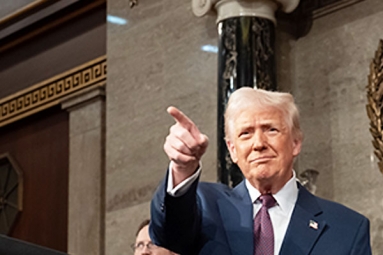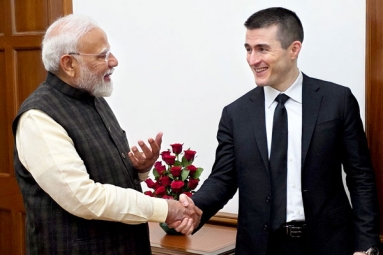
(Image source from: Vinteum)
After advocating proxy voting for Non-Resident Indians, ruling Bharatiya Janata Party (BJP) has opposed to giving such a right to domestic migrants.
In point of fact, during the just-concluded monsoon session, the Lok Sabha gave its nod to an amendment to the Representation of People's Act, which proposes to give 'proxy voting' rights to NRIs.
In an all-party meeting called by the Election Commission on August 27, the BJP had said while "genuine domestic migrant voters should be identified" through a proper process, "no proxy or absentee mode be adopted and therefore in the garb of migrant voters no bogus voting should be permitted".
The party, which was represented by national general secretary Bhupender Yadav and health minister JP Nadda, said in its statement that e-voting ballot instead was a good idea as was linking the voter Identity Document (ID) with Aadhaar for domestic migrants.
Yadav said the approach was different as both voting segments were different in nature and faced different constraints.
"It would not be fair to compare them at all. Proxy voting rights for domestic migrants are hardly possible as they reside within the country. NRI voters, on the other hand, can hardly come back to vote and hence the different party position on it. You cannot compare the two as both operate in different situations," Yadav told ET.
However, the opposition parties have objected to the very idea of 'proxy voting', saying it can be easily ill-used and violated the principle of the secret ballot.
Proxy voting basically allows an absentee voter to nominate someone else in his constituency to cast his vote.
In the all-party meeting, the Congress, which strongly opposed proxy voting or any special privilege for NRIs, told EC that it was open to time-tested postal ballot for domestic migrants.
The Congress also said, "NRI voters must not be placed on any special footing vis-a-vis Indian voters". It opposed proxy voting, saying it "violates the principle of secrecy of voting".
By the way, after the Lok Sabha passed the Representation of People Act amendment, Shashi Tharoor, chairman of the Parliamentary Standing Committee on External Affairs, had strongly objected the decision.
By Sowmya Sangam






















